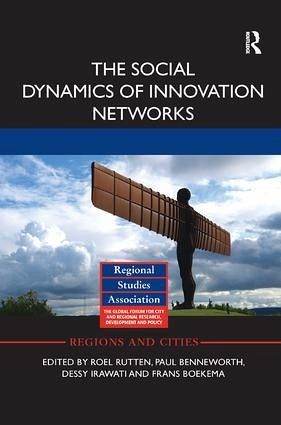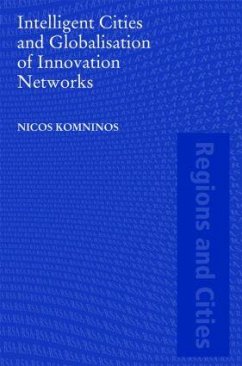
The Social Dynamics of Innovation Networks
Versandkostenfrei!
Versandfertig in 1-2 Wochen
60,99 €
inkl. MwSt.

PAYBACK Punkte
30 °P sammeln!
The social dynamics of innovation networks captures the important role of trust, social capital, institutions and norms and values in the creation of knowledge in innovation networks. In doing so, this book connects to a long-standing debate on the socio-spatial context of innovation in economic geography, which is usually referred to as the Territorial Models of Innovation (TIMs) literature.














